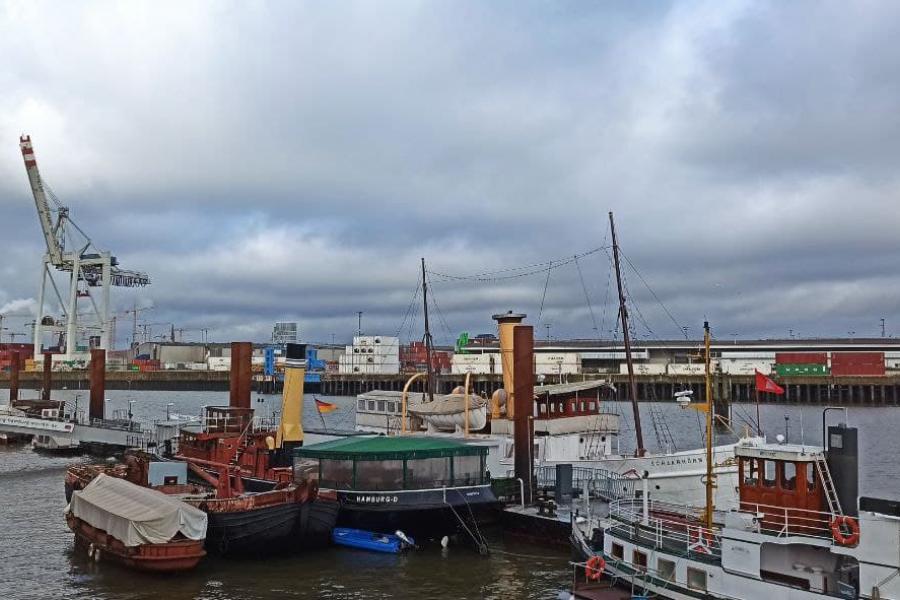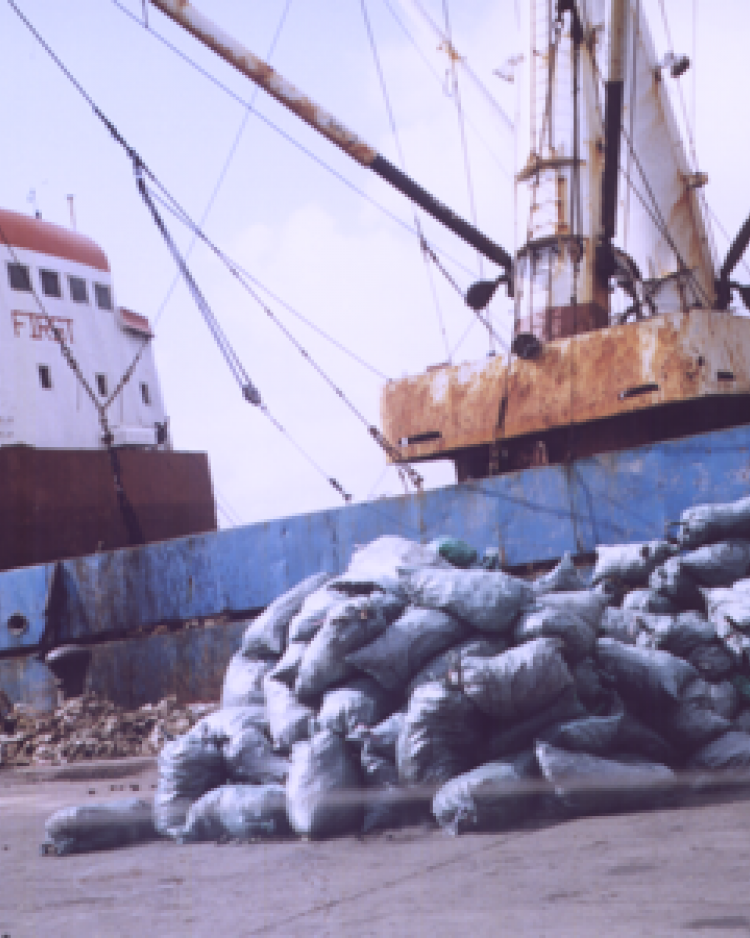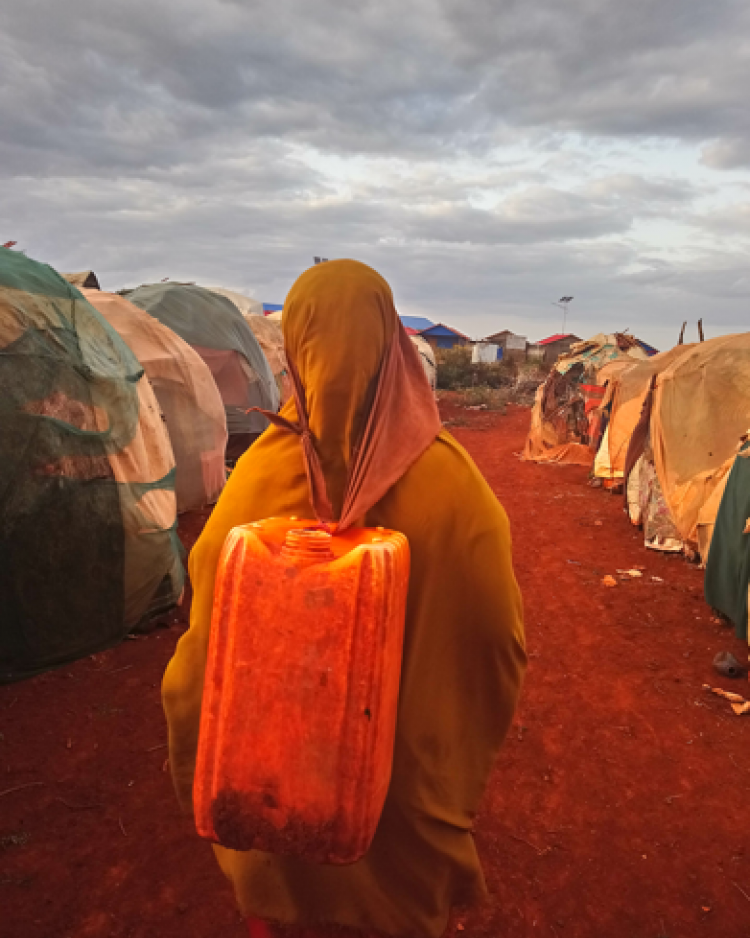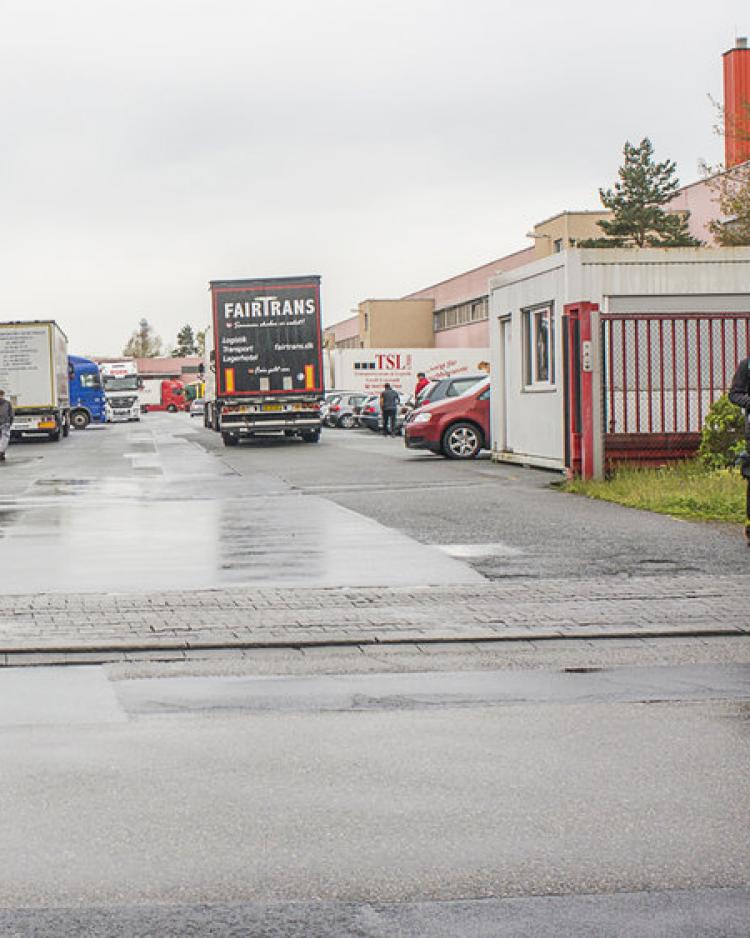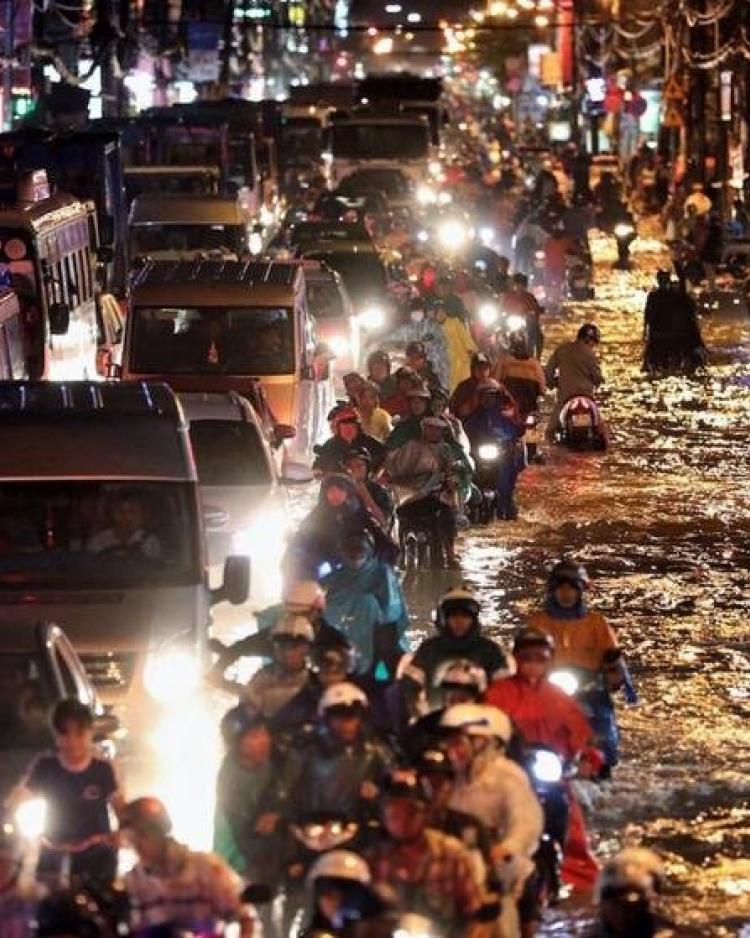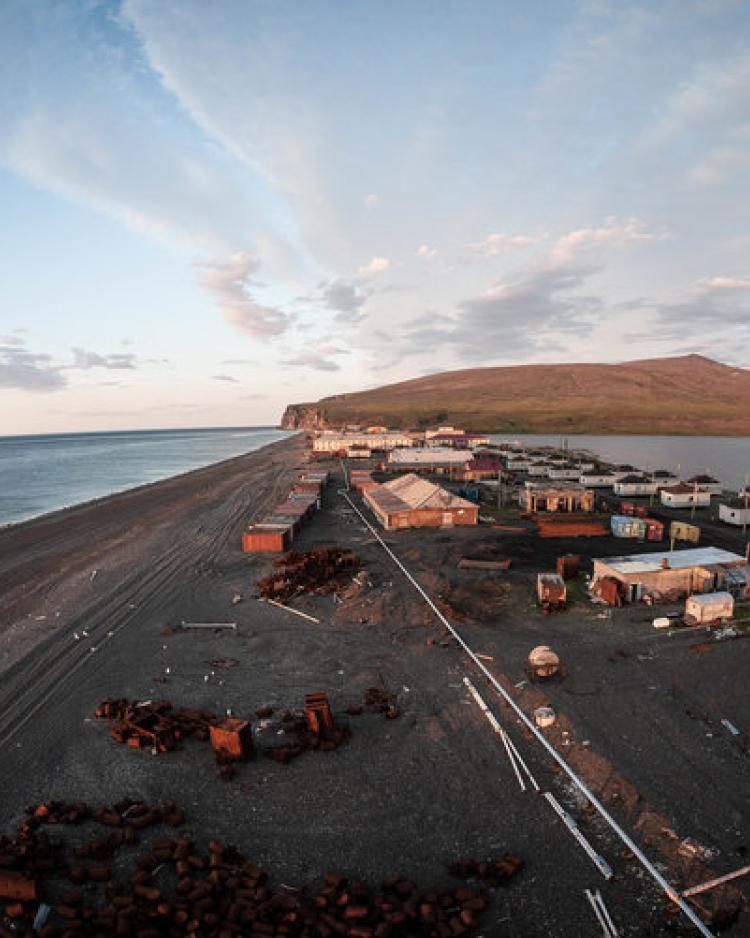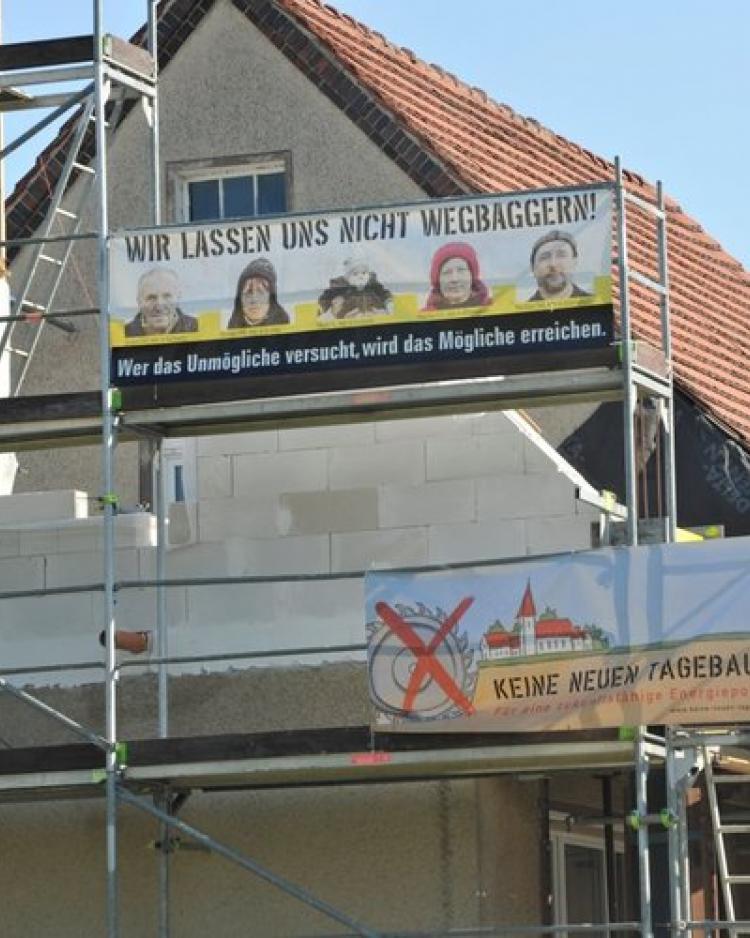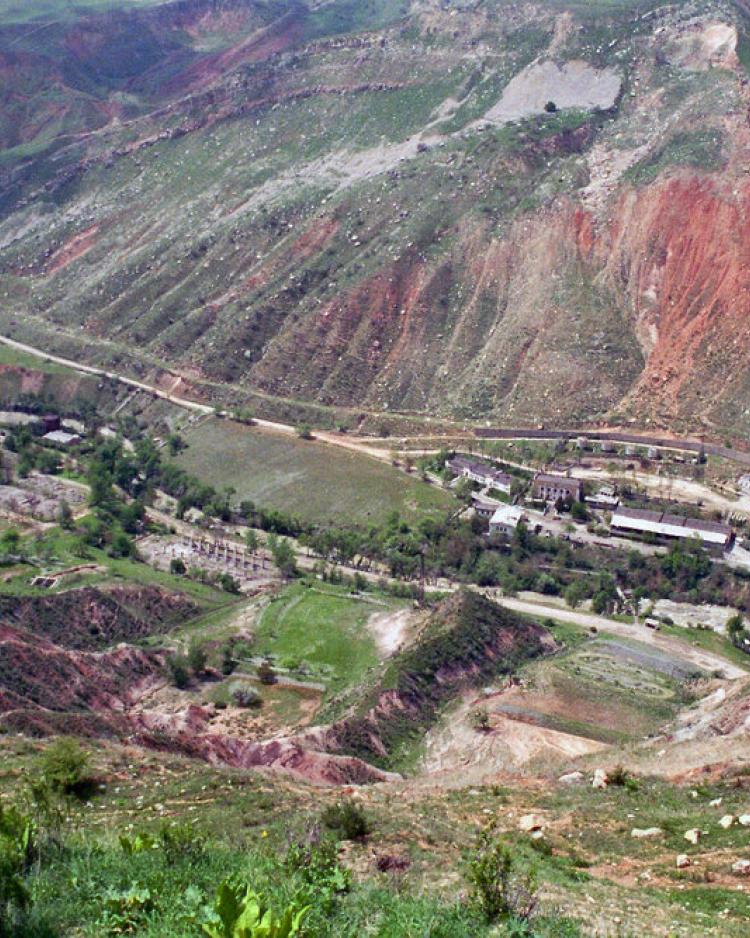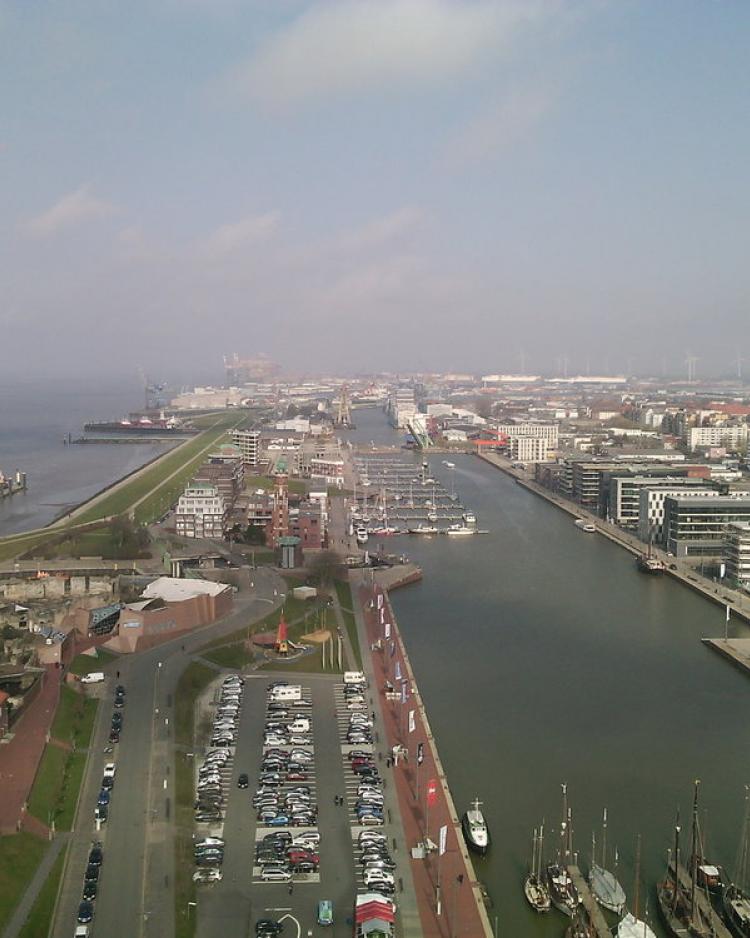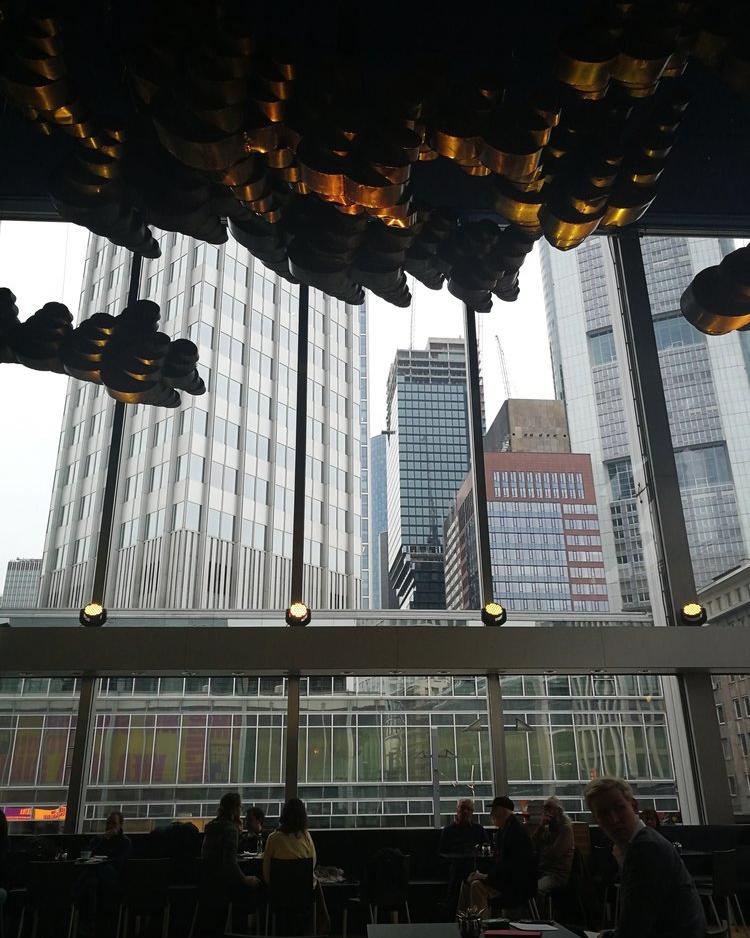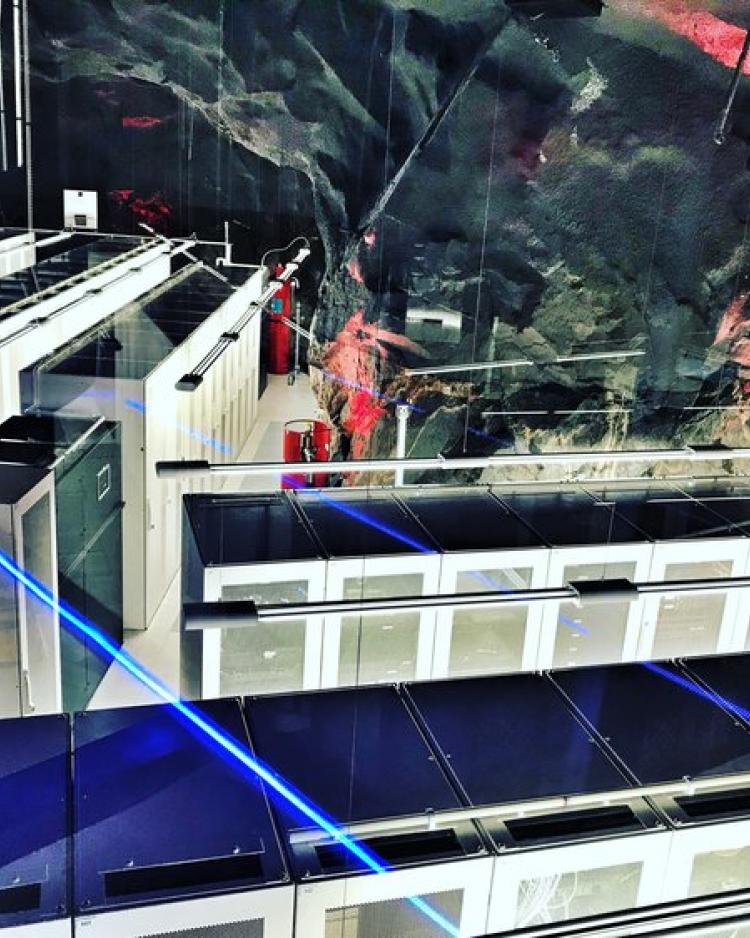Contested Connections
Jutta Bakonyi
The research project focusses on port expansions, roads, and ICT networks to investigate how contemporary geo-political and geo-economic competitions are engaging international and local power holders and shape the development of transport and communication infrastructures.
Camp Infrastructures
Jutta Bakonyi
In a recent ESRC/DFID funded project I explored together with colleagues from Somalia, Norway and the UK processes of urbanisation from the viewpoint of displaced people.
The Social and Material Worlds of Logistics Blue Collars
Cécile Cuny
The Worklog project intends to represent these places, common and yet invisible, and the point of views of the people who work there every day, according to an approach combining sociology and photography.
Radical Resilience
Kathrin Eitel
The project strives to go beyond a critical examination of power hegemonies and to actively co-constitute these alternative political sites through co-laborations.
Social Archaeology of an Imperial Shatter Zone
Tobias Holzlehner
The project focuses on the relationship between material culture, landscape and human behavior, exemplified through infrastructure. By analyzing technological evolution and devolution through shocks, seismic shifts, debris, fall-backs, and involution, this ethnography explicitly gives the materiality of technological transitions a central stage.
'Nuclear' Urbanism Re-Scaled
Siarhei Liubimau
In the context of CityIndustries Network I am going to work with the question of whether post-Soviet ‘nuclear’ towns constitute a particular mode of urbanization amongst other cases of Soviet industry led urbanization.
Decarbonising Electricity
Katja Müller
This project addresses the legitimacy question in shifting from fossil to renewable energy in policy and practice. It compares India as a low-income emerging industrial country, Germany as a post-industrial high income country, and Australia as a high-income extractivist country.
The Coal Rush and Beyond
Katja Müller
Our project, funded by the Australian Research Council, explores the global coal conundrum, through the eyes of communities on 3 continents. In the central Indian state of Chattisgarh, in Lusatia (Lausitz) in Eastern Germany, and on Australia’s Liverpool Plains, local people are fighting to save their fields, their forests, and their way of life from the relentless march of coal. In so doing, they are reaching out and forging links with an emerging global movement for climate action, which often has its headquarters, think tanks and mass of supporters in large cities.
Precarious Half-Lives
Nikolaos Olma
This project contributes to the existing literature on the legacy and contested liabilities of the Soviet Union’s military-industrial complex, life in toxic or contaminated areas, and the nexus of toxicity and scientific knowledge production.
Sugar, Space and Speed
Kerstin Poehls
In my ongoing Hamburg-based research, I investigate the long history and contested present of sugar as a global and highly moralized commodity - including its colonial, post-colonial entanglements and the various actors involved: (beet and cane) sugar industry, international traders, the EU, terminal workers, the food industry (served Europe-wide through the port of Hamburg), lobbyists, consumers, EU regulations, governments, and others. I am interested in flow/movements of goods, knowledge, infrastructures, power struggles that can all be traced at the port of Hamburg.
From Shrinkage to Urban Sustainability
Felix Ringel
While there is a significant amount of scholarship on sustainability – and on one of its motivating factors, climate change – my project takes a new approach to it. I conceive sustainability as a trope, figure or image of the future, combining recent advances in the anthropology of time with more traditional areas of sustainability research.
Reconfigurations of Urban Provisioning
Andreas Streinzer
Andreas is at the moment working on designing his second major research project: on the restructuration of unemployment assistance and the tax system in Germany and Austria. The project combines his long-term research interests in the anthropology of the state, economic anthropology, and the moral dimensions of inequality.
Cities as Infrastructural Sites of Digital Capitalism
Asta Vonderau
This research took its starting point in the ethnographic case study on the implementation of Cloud infrastructure and Data Center industry in the Swedish city of Luleå. The project Farming Data, Forming the Cloud: The Environmental Impact and Cultural Production of Information Technologies was funded by The Swedish Foundation for Humanities and Social Sciences (2014-2018) and investigated the social and environmental effects, which the new industrial development had within this specific urban context.

